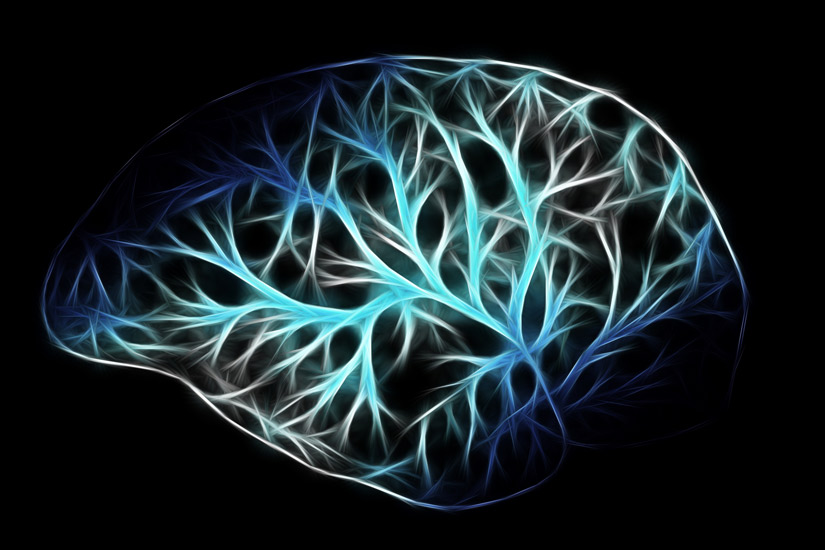Think about a brand new computer.
It comes from the factory set up to accomplish certain tasks. The user can adjust how the machine approaches those tasks (and even change the tasks themselves) by changing something about the computer. You could, for example, add new software—the programs of instructions that allow computers to provide everything from word processing and graphic design to video games. Or you could make a change to the machine’s hardware—the physical aspects of the computer—by, for example, adding additional memory, a faster processor, or a better monitor.
Whether the change is to the hardware, the software, or both, the computer will now function in a different way than it did when you unpacked it from its box.
Something similar happens in the brains of those with substance abuse disorders. Over time, drugs and alcohol can, in effect, rewire the brain, causing it to function in a new way. Unfortunately, unlike upgrading the graphics card on your computer, these changes are not for the better. You could think of drugs as computer viruses—malicious programming that damages the ability of your brain to function properly.
The Brain in ‘Factory New’ Condition
An article from the National Institute on Drug Abuse (NIDA) describes the normal function of the brain when it comes to behaviors that bring us pleasure:
“Our brains are wired to increase the odds that we will repeat pleasurable activities. The neurotransmitter dopamine is central to this. Whenever the reward circuit is activated by a healthy, pleasurable experience, a burst of dopamine signals that something important is happening that needs to be remembered. This dopamine signal causes changes in neural connectivity that make it easier to repeat the activity again and again without thinking about it, leading to the formation of habits.”
Those “changes in neural connectivity” can be compared to changes we make to our computers to make them function better. By choosing healthy ways to seek pleasure, we train our brain to seek out these healthy activities and thus form healthy habits.
A Drug-Induced Rewire Makes Things Go Haywire
This same function—the reinforcement of pleasurable activities–has a decidedly negative impact when drugs or alcohol are involved. They reprogram or rewire the brain in destructive ways over time. The NIDA article puts it this way:
“Just as drugs produce intense euphoria, they also produce much larger surges of dopamine, powerfully reinforcing the connection between consumption of the drug, the resulting pleasure, and all the external cues linked to the experience. Large surges of dopamine ‘teach’ the brain to seek drugs at the expense of other, healthier goals and activities.”
This malicious rewiring of the brain can, of course, be very difficult to overcome. And just as you might take your computer in for repairs, the work of resetting the brain often involves professional help.
Routes to Repair
A dedicated substance abuse treatment center, like Bel Aire Recovery Center in Kansas, might be thought of as a “repair shop” for a brain that needs to be reset. With evidence-based approaches, a high quality treatment center offers a place for rehabilitation and the ongoing resources necessary to support lasting sobriety. And while some standard rules apply to rehab situations, rehabilitation and recovery can be personalized to respond to any number of factors, including co-occurring conditions (such as depression or anxiety), a history of trauma, and more.
In some cases, medication may be an appropriate intervention to aid the rewiring of a neural network. Some medications are available today, while others are in development. In the last few years, at least one study of mice has shown promising results using medication to effectively block the portion of a neural network that is associated with an alcohol addiction. If similar results can be shown in human subjects, a powerful new technique will be available to doctors and their patients.
All treatment options take advantage of the brain’s neuroplasticity. Our brains are able to make new connections and acquire new neural pathways. These new pathways might be thought of as a “work around” to the problem caused by the substance abuse disorder’s impact on brain function.
We Are Much More Than Your Neighborhood Repair Shop
The brain might be like a computer in some ways, but at Bel Aire Recovery Center, we understand the importance of compassion and personalization when it comes to establishing an effective treatment plan for a substance abuse disorder. If you are searching for a treatment center for yourself or a loved one, we hope you will consider Bel Aire. We are committed to providing services that can help “rewire” your neural networks and support your lasting sobriety.




